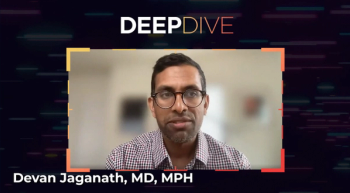
Devan Jaganath, MD, MPH, breaks down how artificial intelligence technology helps detect cough sounds, severity and frequency, and how this new technology can help treat infants.

Devan Jaganath, MD, MPH, breaks down how artificial intelligence technology helps detect cough sounds, severity and frequency, and how this new technology can help treat infants.

During the recent Digestive Disease Week (DDW) meeting in Chicago from May 6-9, AI was a major topic of discussion. During the meeting Drs. Shaukat and Lee shared insight into how AI is being utilized specifically for colorectal cancer screenings to better detect polyps and forecast risk.

Given the large number of patients diagnosed with cancer and amount of data produced during cancer treatment, interest in the application of artificial intelligence to improve oncologic care is expanding and holds potential. Here, Tufia C. Haddad, MD, discusses how experts can leverage AI to improve care for their patients with cancer.

Faruk Capan, CEO, EVERSANA INTOUCH & Chief Innovation Officer, discusses the arrival of Chat GPT and generative AI in the public consciousness.
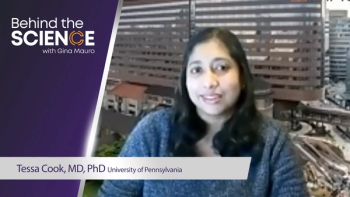
Nina Kottler, MD, MS, Tessa Cook, MD, PhD, and Sonia Gupta, MD shared their insights and perspective on potential benefits and drawbacks of ChatGPT in radiology.

As cannabis slowly gains a foothold in US medicine, psychedelics seem to already inhabit a place of their own, yet their role remains undefined. Dustin Sulak, D.O., founder of Integr8 Health and medical cannabis education resource Healer.com, shares his professional experience with psychedelics as a treatment option for patients in his practice.

On this episode of Deep Dive, Dr. David S. Boyer joins us to discuss 48-week results from the PHOTON study detailing the safety and efficacy of high-dose aflibercept in the treatment of diabetic macular edema. Boyer is an adjunct professor of ophthalmology at the University of Southern California’s Keck School of Medicine and a partner in Retina Vitreous Associates Medical Group in Los Angeles.
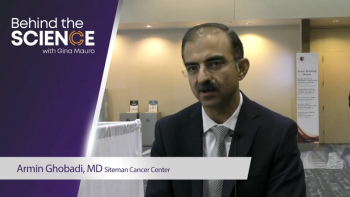
At the 64th American Society of Hematology Annual Meeting, the CGTLive team caught up with experts in the clinical care of patients who are receiving cell and gene treatments. A variety of data were presented on the latest advances in CAR-T therapies that are being evaluated for different patient populations. Specifically, they offered insight into the trends they’ve observed in the development of these treatments, the needs that are lingering where progress has been made, and much more.

Experts discuss their biggest takeaways and most exciting data from the 2023 Gastrointestinal Cancers Symposium.

The US Food and Drug Administration recently approved ibrexafungerp (Brexafemme; Scynexis) for the reduction in the incidence of recurrent vulvovaginal candidiasis (RVVC), otherwise known as chronic yeast infections. Now, ibrexafungerp is approved for the treatment of both vulvovaginal candidiasis and the reduction in the incidence of RVVC. Marco Taglietti, MD, president and CEO of Scynexis, sits down with Contemporary OB/GYN® to discuss this recent approval and what it means for the chronic yeast infection landscape.
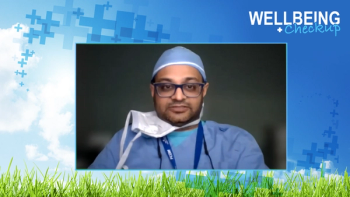
When it comes to maintaining a personal touch with telehealth appointments, appropriate patient selection is key, explains Krupal Patel, MD, MSc, FRCS(C). Patel and his team also conducted research on both patient and providers’ opinions of telehealth, and found that many providers actually still felt connected to their patients, even if their visits were virtual. Similarly, patients also felt that they had better connection to their clinicians, highlighting that telehealth could be a fantastic option that offers more flexibility for both patients and providers.
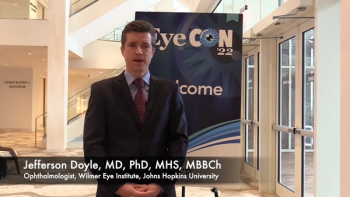
In this episode of Behind the Science, the staff at Ophthalmology Times talked to several physicians recently, posing the question “What are you most excited about in 2023?”
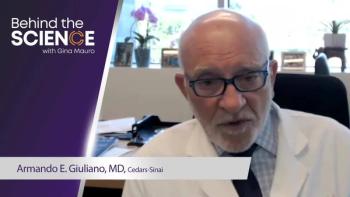
Armando E. Giuliano, MD, discusses updates and advancements in surgery for breast cancer, and how the field has evolved with new developments in the medical space.
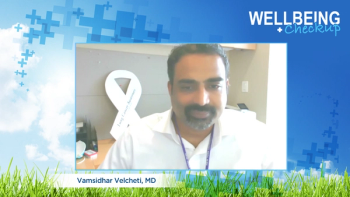
Vamsidhar Velcheti, MD, speaks on Lung Cancer Health Equity SU2C Catalyst® Research Team (with support from Bristol Myers Squibb): The team will investigate whether mobile technology services can improve patient outcomes for underserved, underrepresented diverse patients. Specifically, the team will study whether Black, Hispanic and Asian non-small cell lung cancer (NSCLC) patients across NYC using the ApricityRx™ digital platform, as well as the on-demand ApricityRx™ Cancer Adverse event Rapid Evaluation (C.A.R.E.) service to see if their long-term outcomes can be improved and whether technology-enabled monitoring can close gaps in clinical care for underrepresented populations.

Optometry Times asked some optometry experts what they wish they knew when entering optometry.

Dr. Marina Sirota discusses the new March of Dimes Prematurity Research Center at UC San Francisco (UCSF), which opened its doors in June of this year. The Center is part of the organization’s work in preterm birth rate reduction and will focus on prematurity data sharing, computational drug discovery and electronic medical record research.

Jennifer Davidson, DO, discusses the recent FDA approval of ustekinumab (STELARA) to treat pediatric patients with active psoriatic arthritis with a focus on advancing care in psoriatic disease and new strategies to increase diversity in rheumatology.
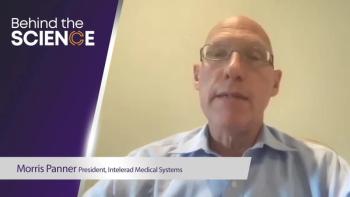
Nina Kotter, MD, the Associate Chief Medical Officer of Clinical AI for Radiology Partners, Sonia Gupta, MD, the Chief Medical Officer for Change Healthcare, and Morris Panner, the President of Intelerad Medical Systems, discussed challenges with radiology workflows and how artificial intelligence (AI) could improve workflow efficiencies and possibly facilitate improved patient outcomes down the line.

Advantage Dental+ has incorporated “teledentistry” in its practices, allowing patients to have more flexibility in a variety of services. Sharity Ludwig, EPDH, MS, is Director of Alternative Care Models at Advantage Dental+ and has expanded on some of the benefits that telehealth/teledentistry can offer both patient and practitioner. Teledentistry can serve patients in a variety of ways, including assisting patients who may otherwise be unable to access quality dental care because of location or working hours.
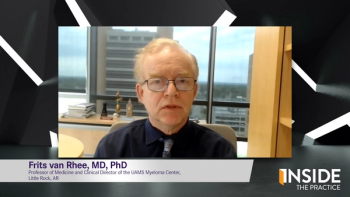
The University of Arkansas for Medical Sciences Myeloma Center became the first institution in the state to offer CAR T-cell therapy for patients with multiple myeloma. Frits van Rhee, MD, PhD, joins to discuss.
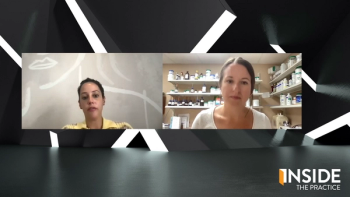
Alex Capano DNP, CRNP and Samantha Timmermann discuss introducing CBD in pharmacy practice, including how to ensure patients are discussing it, what are the questions pharmacists should prepare for, and what pharmacists need to learn before introducing it.
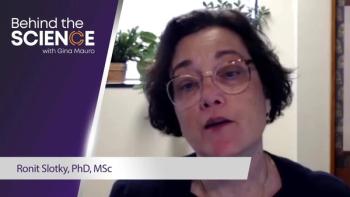
Ronit Slotky, PhD, MSc, of Hackensack Meridian Health, dives into ongoing research and the role of stem cells in the treatment of multiple myeloma.

Paul Harari, MD, discusses upright proton cancer therapy, which will be offered at University of Wisconsin Health.

Paul Harari, MD, details how University of Wisconsin Health will begin to offer upright proton therapy, making it the first institution in the state to do so for the treatment of cancer.

John Dobak, MD, is the CEO of DermTech. Derm Tech is a company dedicated to helping diagnose melanoma is less invasive ways. He discusses their newest technology available to test suspicious moles and more in this video.
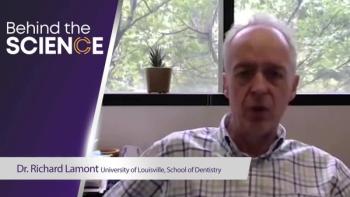
Dr. Richard Lamont joins us to discuss potential dangers in the oral biome, as well as the link between oral health and systemic health. As part of a study from the University of Louisville led by Dr. Lamont, researchers found a vital protein called interferon (intur-fearon) lambda that is produced by cells in the mouth and can help protect against viral infection.

Sam Asgarian, MD, MBA discusses how PrismRA uses a patient’s disease signature to match them with a therapy best suited for them and how this new technology has the potential to produce faster, better outcomes in this patient population.

Dr. Bridget A. Bagert sat down with NeurologyLive to discuss a hot topic of clinical concern in multiple sclerosis: Epstein-Barr virus. After 2 decades of research suggesting a link between EBV and MS, the findings of a recently published paper provided the most robust dataset to date, with analyses suggesting there may be a causal link between EBV infection and MS disease onset. Bagert, an expert in the field of MS who has focused on this link in her clinical research, offered her perspective on the findings the what is known to this point.

The Allegheny Health Network breast reconstruction surgery team are, by their count, the second team in the nation to conduct regular practice with a key innovation: a robot-assisted deep inferior epigastric artery perforator (DIEP) flap procedure—a minimally invasive technique at the forefront of advancement for cancer-related reconstruction surgery. The interview features Dr. Moreira and Dr. Murariu explaining the intricacies of the procedure, keys to defining patient eligibility, and future utility of robot-assisted reconstruction surgery.

Philip Riches, PhD, discusses his recent study, “Evaluation of supported self-management in gout (GoutSMART): a randomised controlled feasibility trial.” Results revealed improved urate targets in patients receiving supported self-management when compared with usual care.